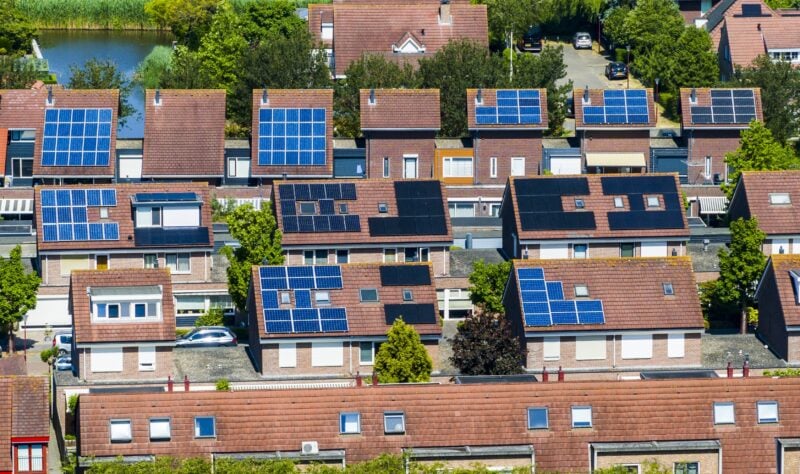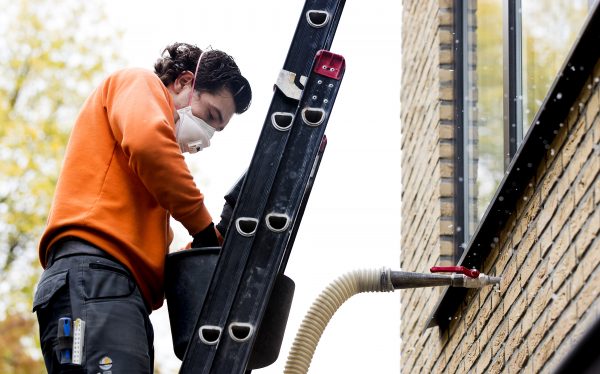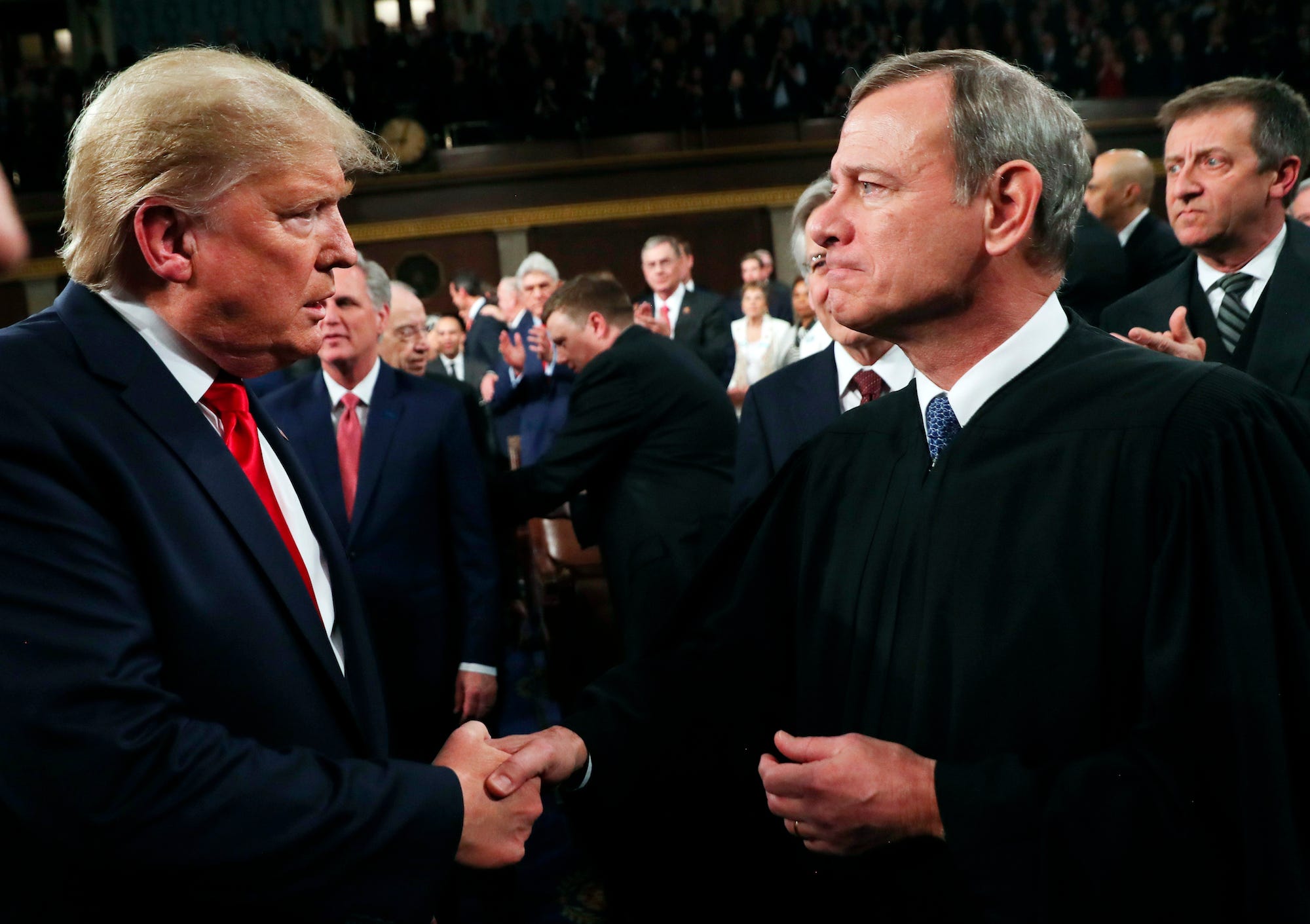
Leah Millis/Pool via AP
- President Donald Trump has promised to go to the Supreme Court as part of his numerous legal challenges trying to claw back President-elect Joe Biden’s electoral victory.
- The Supreme Court doesn’t seem interested.
- Pennsylvania’s vote certification deadline is fast approaching, which would leave two of Trump’s highest-profile election cases moot.
- Visit Business Insider’s homepage for more stories.
President Donald Trump is pursuing an expansive legal assault on vote certification in battleground states that he lost to President-elect Joe Biden.
And in his speech on election night falsely declaring victory, he said “we’ll be going to the US Supreme Court” to address the “major fraud in our nation.”
The Supreme Court doesn’t seem interested.
Trump and his allies have filed 21 different challenges across five states, attempting to stop states from certifying their election results and giving Biden the presidency.
One of their main efforts is in the Supreme Court. The Trump campaign is attempting to latch on to an existing case between Pennsylvania Republicans and the secretary of the commonwealth. Pennsylvania allowed counties to count ballots that were mailed by Election Day but arrived at ballot processing centers later. Republicans sued, claiming that only the state legislature had the power to make such a change.
On November 4, the Trump campaign filed a motion to intervene in the lawsuit. He and other campaign representatives have said that the votes in question should be thrown out.
It's now November 18. The Supreme Court has ignored the Trump campaign's intervention request so far.
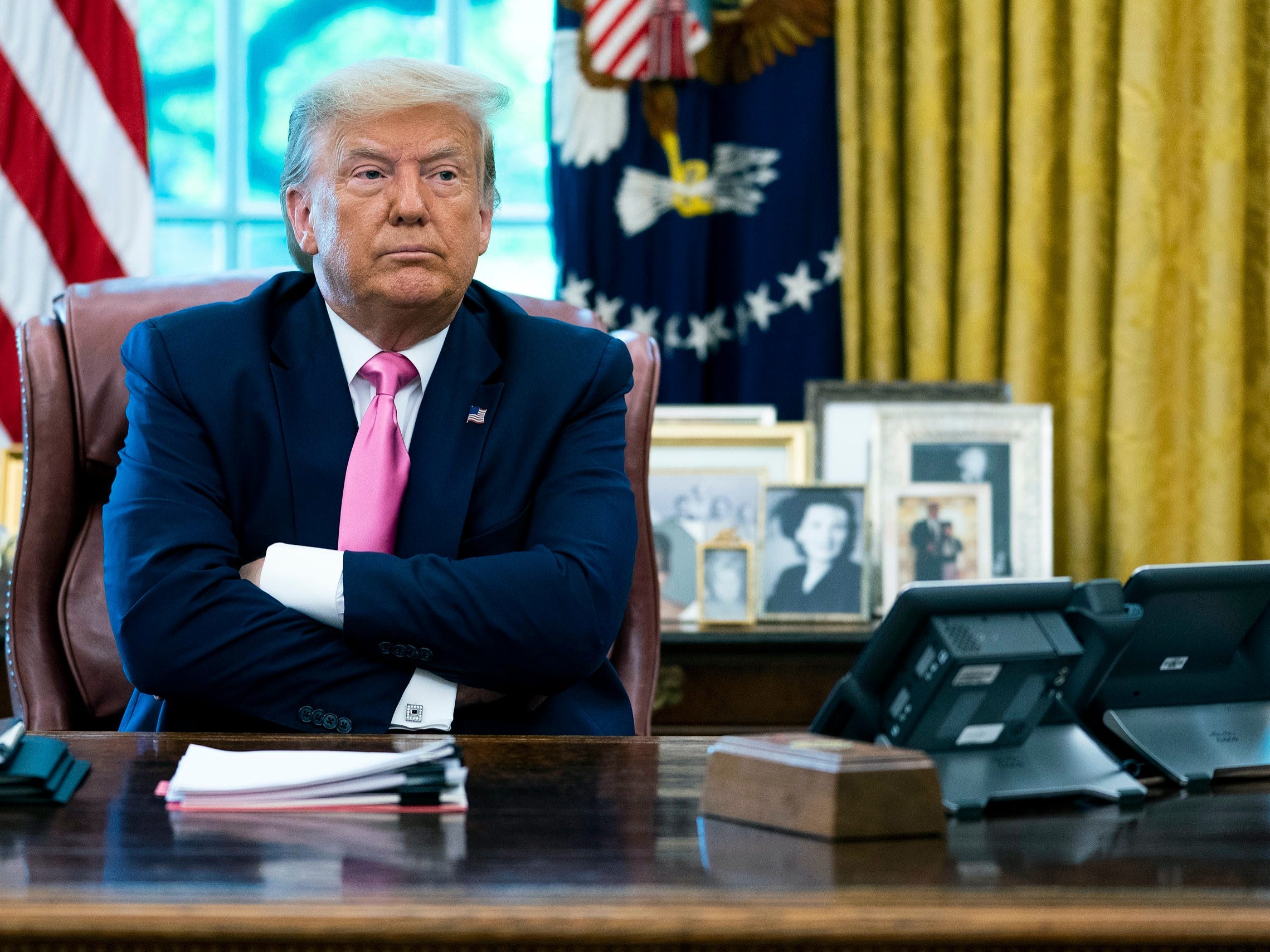
Doug Mills-Pool/Getty Images
Pennsylvania's vote certification deadline is November 23. That leaves vanishingly few days for the Supreme Court to take up the case and issue a ruling before the commonwealth finishes certifying its votes.
The lack of movement from the Supreme Court, according to Michael Dorf, a constitutional law professor at Cornell Law School, suggests that Chief Justice John Roberts has little appetite to take on the case.
"Chief Justice Roberts values the court's perception as apolitical. And so he wants to keep the cases away," Dorf said. "I'm not sure that all of his colleagues share that preference, but even the most conservative justices understand that there are limits to what can be done via the law."
'They're either frivolous or borderline frivolous, and the Court knows it'
The Supreme Court already heard the Pennsylvania case once, in October. They were tied at 4-4, which left a lower court ruling in place — a loss for the Republicans. With Justice Amy Coney Barrett confirmed, Republicans appealed again, hoping the Supreme Court would re-hear the case.
But on October 28, five of the justices turned down the request to expedite a hearing in advance of Election Day. According to Justin Levitt, a professor at Loyola Law School and a former Justice Department official who oversaw voting-rights cases, it was a clear signal that the Supreme Court wasn't interested in wading into election issues — no matter how badly Trump wants them to.
"By deciding not to put that case on a particularly fast track, the Court signaled that it's not especially interested in wading into this election, the President's fantasies to the contrary notwithstanding," Levitt told Insider. "And I can promise that if that case didn't get put on the fast track, none of the other pending cases are anywhere near close to drawing Supreme Court attention: they're either frivolous or borderline frivolous, and the Court knows it."
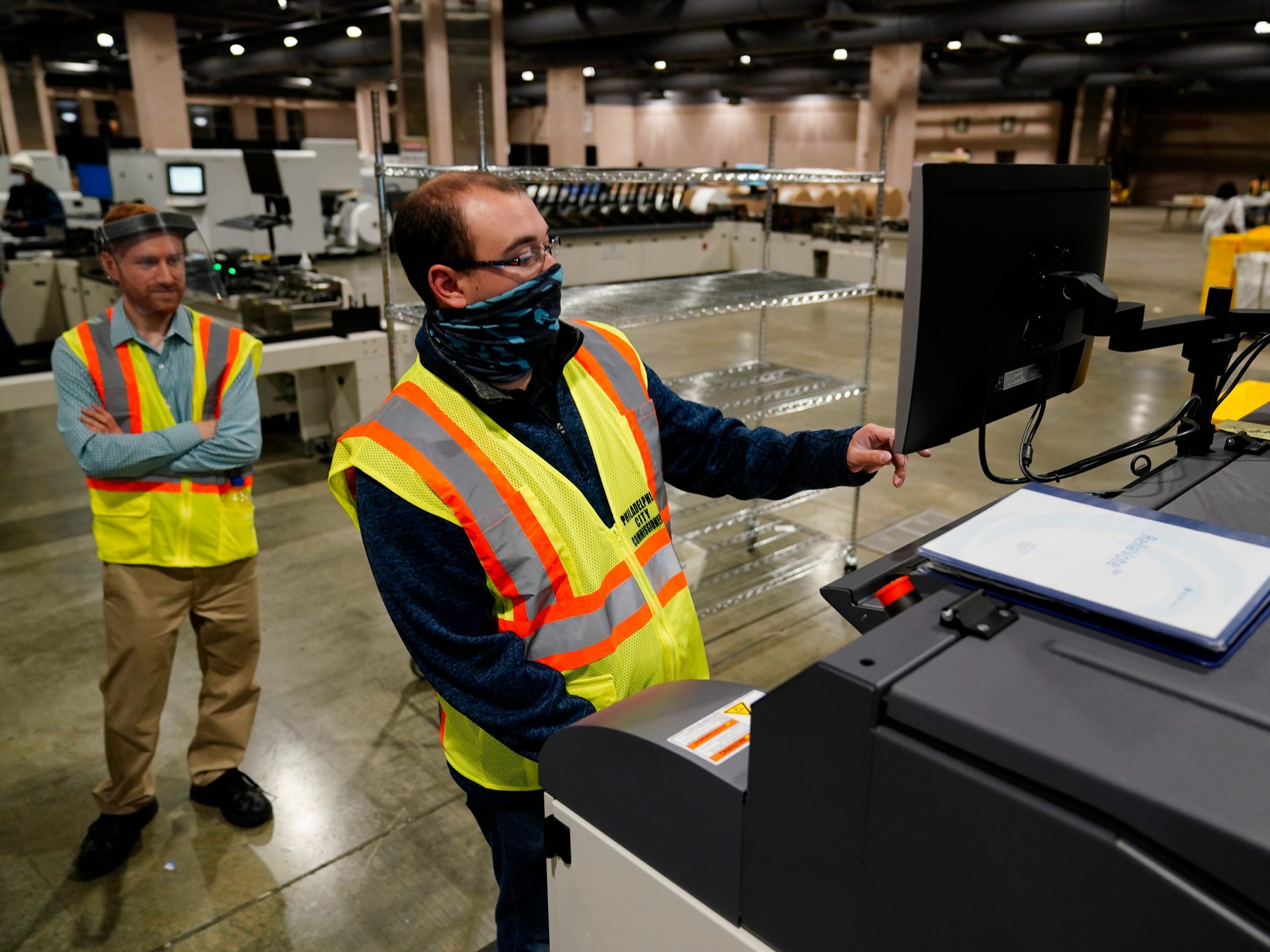
AP Photo/Matt Slocum
Only around 10,000 such ballots arrived at processing centers between November 4 and November 6, the state deadline for accepting the ballots. Biden leads the state by more than 82,000 votes, according to Decision Day HQ data published by Insider — and that count doesn't even include those 10,000 ballots. So there's no situation where these ballots would affect the election results.
"The case is likely to become moot because the relief sought doesn't affect anything at this point," Dorf said.
According to Dorf, there's a legitimate legal issue at hand: Does the Pennsylvania legislature have ultimate discretion when it comes to changing election rules, or the state's executive branch?
But with a case so politically charged, Roberts would rather let the issue rest for now, and possibly take it up again later, Dorf said.
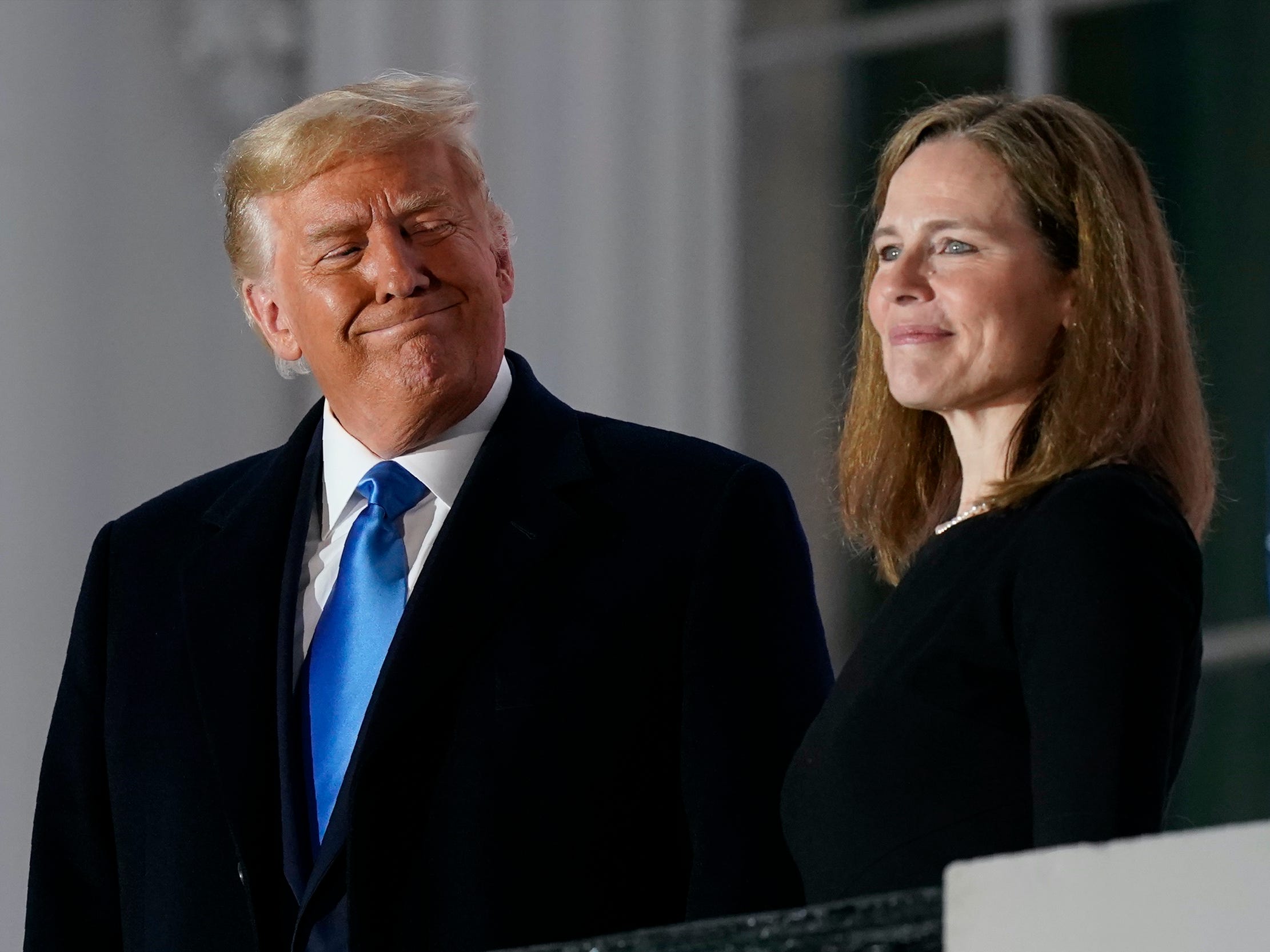
AP Photo/Patrick Semansky
Even Coney Barrett, who wasn't on the Supreme Court when it first heard the case, may not be eager to take it on. She also skipped the decision-making process when the court decided not to expedite the hearing on October 28, according to court records.
"She's going to be on the court for another 40 or more years, right? Long after the Trump presidency has receded into history," Dorf said. "She will have a legacy. I think she will want that legacy to be about something other than how she was named to the court at the last minute by a president who was trying to hold on to the presidency through unlawful means."
The other cases aren't going much better
The Trump campaign has a few other federal lawsuits in the works, which could also feasibly be appealed up to the Supreme Court. But they aren't likely to get a chance, either.
Its other major effort in Pennsylvania is a federal lawsuit that seeks to halt the entire state's certification process. It argues, in part, that mail-in ballots are highly susceptible to fraud (research has shown that's not the case), and that it's illegal to enter ballots without Republican election observers overseeing ballot counters in highly specific circumstances.
After most of the campaign's legal team quit the case at the last moment, Trump enlisted Rudy Giuliani to argue it in court.
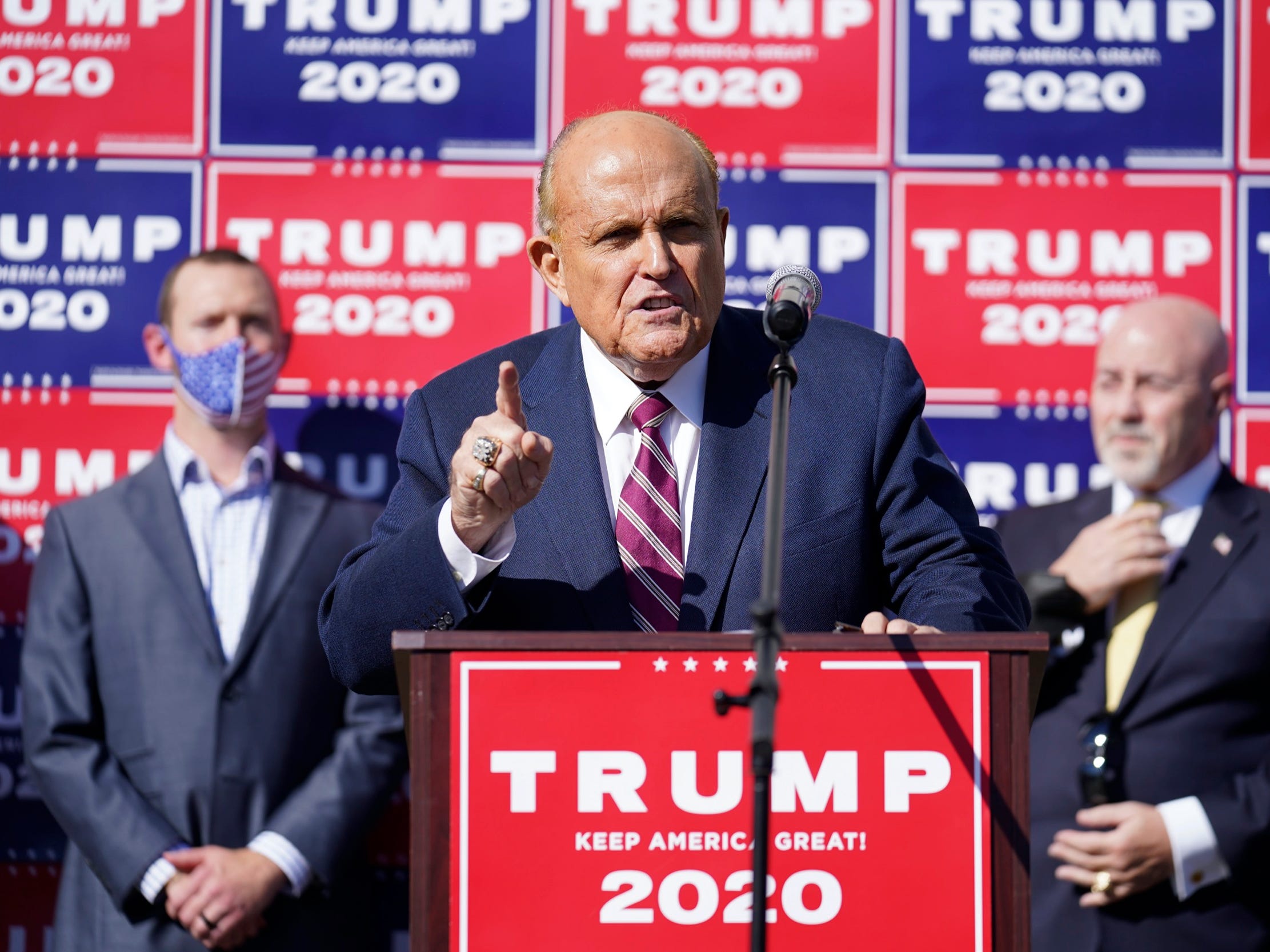
AP Photo/John Minchillo
Much of the oral arguments on Tuesday involved Pennsylvania county lawyers pointing out that the case was backed by little evidence and misunderstood much of the state's election law.
"You're asking this court to invalidate more than 6.8 million votes, thereby disenfranchising every single voter in the commonwealth. Can you tell me how this result can possibly be justified?" Judge Matthew Brann asked Giuliani at one point on Tuesday.
Brann asked Giuliani and his team to submit more evidence for their lawsuit by Wednesday evening. But on Wednesday, Trump's team asked for an extension.
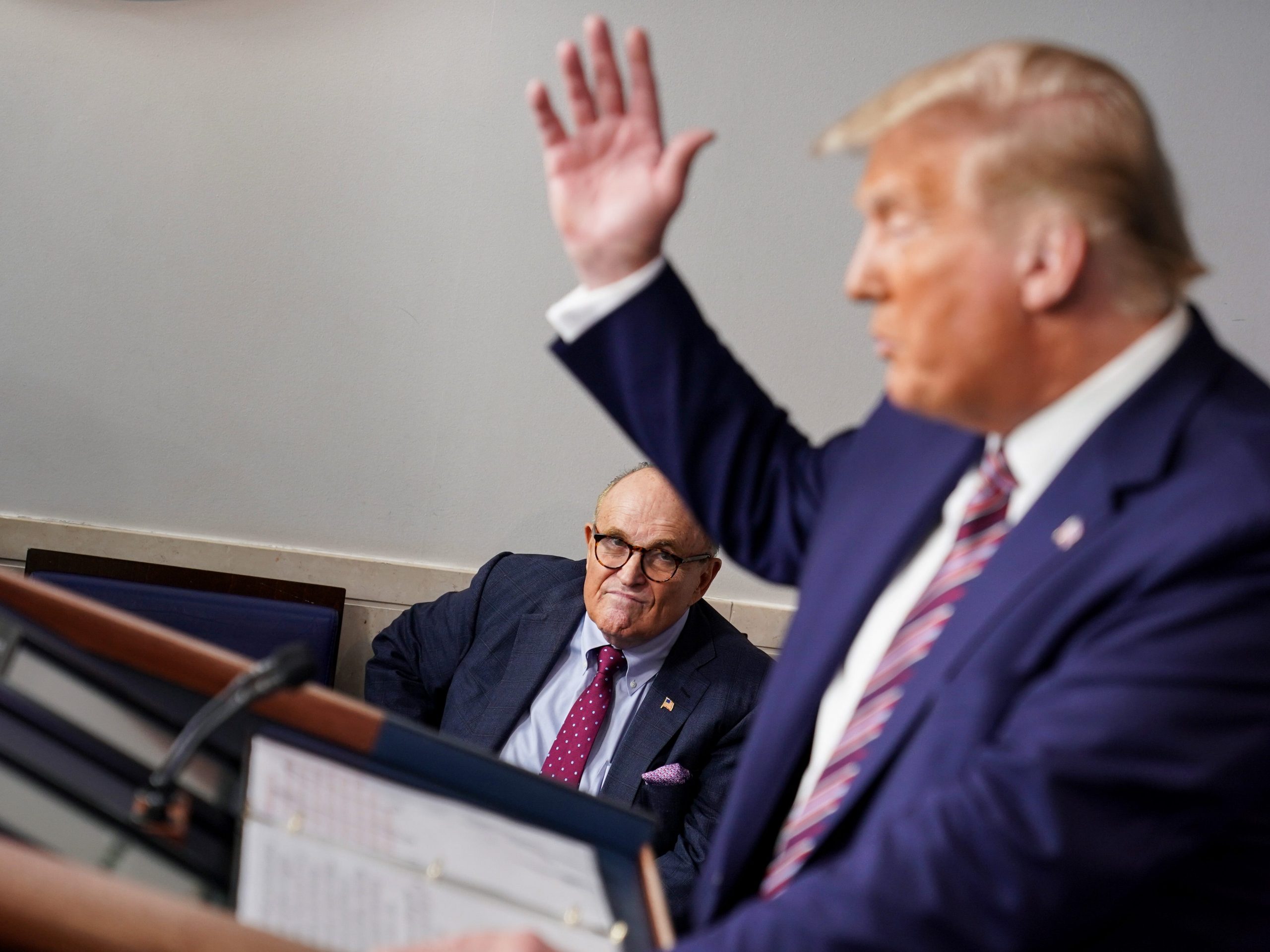
Joshua Roberts/Getty Images
It's not clear how long Trump's legal team needs for an extension, because their request mixes up the dates for Wednesday, Thursday, and Friday. Regardless, it takes time for the other parties in the case to respond to their refreshed arguments, and then for the judge to make a decision on them. If it requires an appeal, that takes time, as well. It all flies perilously close to Pennsylvania's November 23 ballot certification deadline.
"The President has been repeatedly saying that he expects SCOTUS to come to his rescue. But he's the only one who thinks that's going to happen," Levitt told Insider. "And this would not be the first time that the President's public narrative was sharply at odds with reality."
Time is running out in all of Trump's court cases
Even if Trump overcomes long odds and secures a federal court ruling to delay or block Pennsylvania from certifying its votes, he would still lose the election.
Biden has won 306 electoral college votes, well beyond the 270 needed for the presidency. Pennsylvania includes 20. The Trump campaign has also mounted challenges in Georgia, Michigan, Arizona, and Nevada.
But time is dwindling. Georgia's certification deadline is November 20. Michigan's is November 23. Arizona's is November 30. Nevada's is December 1. Some of those states allow challenges after certification deadlines under specific circumstances, but it's not clear if Trump's litigation will meet those standards.
"I am literally baffled by the Trump campaign's litigation strategy at this point, unless it's just a fundraising gimmick, or a bit of spite or something," Dorf said. "But it doesn't strike me as aiming to accomplish the sorts of things one ordinarily aims to accomplish through litigation."
- Read more:
- Trump keeps making arguments about the election on Twitter that he won't make in court
- Republicans have won just one out of nearly two dozen lawsuits they've filed since Election Day
- Pennsylvania lawyers shredded Rudy Giuliani's arguments in Trump's biggest election lawsuit, calling them 'disgraceful' and 'really inventive'
- After 5 quit, one lawyer was left to defend Trump's big election lawsuit in Pennsylvania. He previously said the litigation 'will not work.'


